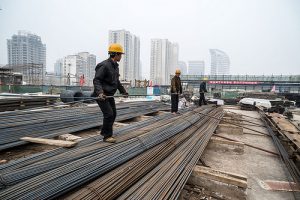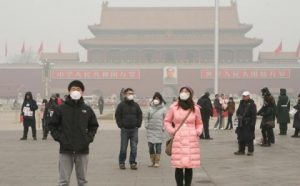Although China is home to some of the densest cities in the world, its newly developed urban areas are experiencing rapid geographic expansion. Urban sprawl is a serious issue. There are multiple reasons for the problem – a prominent one is fiscal weakness in Chinese cities.
In western countries, a significant portion of a city’s revenue comes from property taxes. But in China, these taxes don’t exist. This means Chinese cities don’t have the necessary tax base with which to meet the needs of recurrent expenditure and investment. Another fiscal instrument often used to raise capital is the issuing of government bonds.
In China, only the central government can leverage bonds to raise capital, leaving China’s cities in a difficult position when trying to raise funds.
While both levying property taxes and issuing government bonds are lacking in China’s municipal fiscal system, local governments are responsible for a wide range of expenditures. Their main functions cover local infrastructure construction, economic growth, public services delivery, primary and secondary education, and environmental protection.
With limited revenue sources but enormous spending needs, how do Chinese cities finance their rapid geographic expansion? The answer is by selling land. According to Peking University’s Professor Zou Qiren, 83% of Chinese local government revenue comes from land sales. And the trend is not changing anytime soon. In the first half of this year, the three largest Chinese cities – Shanghai, Beijing and Guangzhou – all saw neck-breaking growth in revenue from selling land.
From January until June of this year, Beijing raised $10.16 billion USD through land sales. Shanghai raised $9.64 billion. In Guangzhou, the $6.94 billion raised by the city reflected a whopping 500% growth in revenue from land sales from the year before. According to Chinese real-estate website SouFun, there was a 17% price increase in new residential sites available for sale in 300 Chinese cities in August from a year earlier.
Using land sales as a key source of revenue not only creates a tremendous amount of pressure on China’s scarce arable land, but also leads to unplanned expansion of a city’s footprint. Instead of responding to the needs of citizens with responsible land use planning, city governments find themselves vulnerable to the needs and requirements of land purchasers.
When cities respond to the needs of land purchasers, mixed-use planning is often abandoned. As a result, the cost of infrastructure and transport increase and government revenue is constantly redirected to building new roads and bringing services to the recently purchased land.
Planning is critical to ensuring a balance between green areas, factories, businesses, residential areas, shopping areas and recreational facilities such as parks and playgrounds. Good planning is often built on community engagement and public participation.
The issues discussed above are deeply rooted in China’s dysfunctional local fiscal systems. To fight urban sprawl and tackle these issues of urban planning, China must develop sound and effective fiscal systems, giving their cities the means to raise funds without selling arable farming land to single-use developers and companies.





